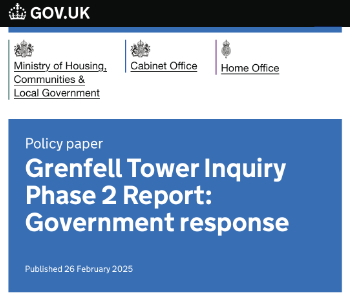Protecting against online crime
Contents |
[edit] Introduction
A cyber aware campaign offers simple steps to help protect the public and small businesses from the majority of preventable cyber incidents. The campaign is delivered in partnership with Cabinet Office, Home Office and the Department for Digital, Culture, Media & Sport (DCMS).
[edit] Response to increased online usage
In February 2021, the National Cyber Security Centre (NCSC) introduced a cyber aware initiative designed to empower and enable the public, sole traders and microbusinesses to better understand how to stay secure online and to take practical steps to help do so. Devised by technical experts at the NCSC, the campaign highlights the threat that cyber criminals pose to those who spend more time online.
Increasing use of email, online payments, virtual meetings and improved access to loans and innovation grants brings great benefits to businesses, but it comes with risk of falling victim to cyber criminals. The campaign emphasises that online security is as important as physical security.
Luckily, however, for those work for themselves or run a small business with fewer than 10 employees, there are protective actions that can be taken online according to the cyber aware campaign.
[edit] Six steps
At the heart of the cyber aware campaign are six practical steps which can help protect against the majority of online crime, helping to keep people secure by protecting passwords, accounts and devices:
1. Create a separate password for business email accounts. An inbox contains lots of sensitive information about a business. It is the gateway to all online accounts, so it should be kept safe with a strong password that's different from all others.
2. Create a strong password using three random words. The longer the password, the harder it is to hack. Long passwords can be difficult to remember. But using three random words will help users create passwords that are both long and strong. Start with the most important business accounts, like email.
3. Save passwords in a default/preferred browser. Remembering lots of passwords can be difficult, but if they are saved in a primary browser, users do not have to remember them. It is also safer than re-using the same password for all accounts.
4. Turn on two-factor authentication. This free security feature adds an extra layer of protection online and stops cyber criminals getting into accounts, even if they have obtained the password.
5. Update devices. Using the latest software, apps and operating system can fix bugs and immediately improve security.
6. Backup. Backing up means there is always a copy of important business data in the event it’s lost or stolen e.g., contract information, customers personal details, key contacts. Make sure these backups are recent and can be restored.
This article originally appeared on the new portion of the ICE website under the headline, '6 ways to protect against online crime'. It was written by Simon Barney and published on 24 February 2021.
--The Institution of Civil Engineers
[edit] Related articles on Designing Buildings
- Adapting your technology to the new working normal.
- Cyber hygiene.
- Cyber-security and phishing.
- Digital Built Britain.
- ICE articles on Designing Buildings Wiki.
- Infrastructure and cyber attacks.
- PAS 1192-5:2015.
- UK organisations encouraged to review cyber security in response to situation in and around Ukraine.
Featured articles and news
International Women's Day 8 March, 2025
Accelerating Action for For ALL Women and Girls: Rights. Equality. Empowerment.
Lack of construction careers advice threatens housing targets
CIOB warning on Government plans to accelerate housebuilding and development.
Shelter from the storm in Ukraine
Ukraine’s architects paving the path to recovery.
BSRIA market intelligence division key appointment
Lisa Wiltshire to lead rapidly growing Market Intelligence division.
A blueprint for construction’s sustainability efforts
Practical steps to achieve the United Nations Sustainable Development Goals.
Timber in Construction Roadmap
Ambitious plans from the Government to increase the use of timber in construction.
ECA digital series unveils road to net-zero.
Retrofit and Decarbonisation framework N9 launched
Aligned with LHCPG social value strategy and the Gold Standard.
Competence framework for sustainability
In the built environment launched by CIC and the Edge.
Institute of Roofing members welcomed into CIOB
IoR members transition to CIOB membership based on individual expertise and qualifications.
Join the Building Safety Linkedin group to stay up-to-date and join the debate.
Government responds to the final Grenfell Inquiry report
A with a brief summary with reactions to their response.
A brief description and background to this new February law.
Everything you need to know about building conservation and the historic environment.
NFCC publishes Industry White Paper on Remediation
Calling for a coordinated approach and cross-departmental Construction Skills Strategy to manage workforce development.
'who blames whom and for what, and there are three reasons for doing that: legal , cultural and moral"
























